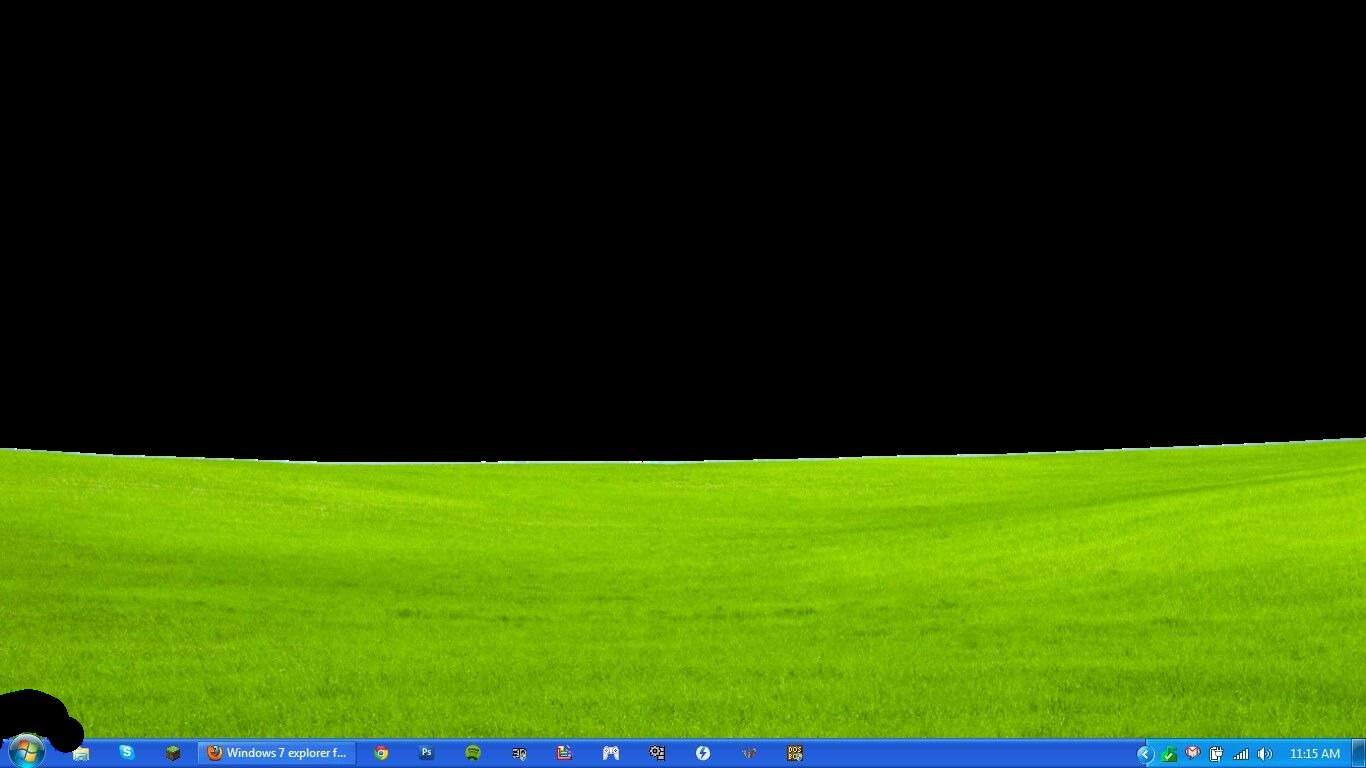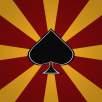a collection.
We met when you were 15 5 years later now 20teen
Kinda hefty
But it’s ok cause ur sexy Even though life is excy And it’s feisty
We are learning together which makes it less crusty I know you will
ALWAYS BE MY BESTIE
Hey bro
by Sumaiyaa Rahman

Beep beep booop
My computer said whoops
It’s a virus not a cold stups
I hope it’s not dead
Crap this is not great Cause it’s become dead
Let me call aggy she so she can revive it again
She is pressing the buttons making it sane She is the opposite of lame Computer scientist is her new name
I hope you aren’t getting too old cause it’s ur bday Soooooo
Happy bday bro
U are a foe
Cause ur my bro
When I see a crow I will punch it so It won’t attack it you bro
When I see danger I will let u know
So I would save u bro

When ur tired bro
Aggy bestie thanks for the help
Every time i yelp Ur assistance makes me melt In happiness from your help

I won’t make u do 20 push-ups, nooooo But rather ask u to rest bro
When ur bored
I will come and entertain you bro
Bc I am not a foe
Happy bday bro
U aren’t a hoe
Cause ur my bro



THEONETIMEWEMAY HAVETAKENASERIOUS PHOTO
 BYARYA
BYARYA
WHYDIDKUROMITASTE LIKEABIOHAZARD

OWHENWEAREABLETOHANG UTMORETHANTWICEAYEAR



SREALISINGSHEACTUALLY PENT$22ONAPOPMART





ALMOSTGETTINGDECAPITATED BECAUSEIFILMEDHERSINGING
ALWAYSGOTHER MOUTHOPEN














if we had a house in stardew valley.png





















https://www.walkervn.com/2023/05/walker-013b-walker-tabi-slipper-013-in.htm



essays you might read:
The year of garbage internet trends by Rebecca Jennings
Fifty years from now, when my AI cyborg grandchildren and I gather around the Christmas tree on an 80-degree day in New York City, I hope that I will find some comfort knowing that at least I can say I was there for the sea shanty renaissance of January 9-23, 2021 What? You don’t remember the span of roughly four days when it felt like the entire internet sang a late 19th-century, New Zealand-linked sailing ballad called “The Wellerman” in perfect unison? You forgot how the whole thing was supposed to be a sign that we, as a species, were longing to come together as one because we couldn’t do so in person? You’re telling me you don’t recite the lyrics in your head as you rock yourself to sleep at night, as though you too are braving the treacherous waters of the South Pacific?
Hmm That’s where you and I differ, because I think about sea shanties all the time I hear “The Wellerman” ringing in my head whenever I am confronted by anything particularly novel on the internet, something that supposedly a great many people care about, all of a sudden, in total harmony
I thought about sea shanties when Elon Musk shouted the name of an ironic cryptocurrency on Saturday Night Live and ended up tanking it I thought about them when TikTok seemed overtaken by Alabama sorority girls showing off their outfits, and I thought about them when so many people tried to replicate a feta pasta recipe that went viral on TikTok that in some parts of the country it was difficult to buy feta at all Whenever I hear the term “cheugy,” an invented word meaning basic or passé, I hear a sound somewhat resembling sea shanties but weirder and warped, the echo of something that was supposed to have disappeared within days but instead spread like a virus.
Sea shanties are the framework with which I view a great many things that happened in 2021, because so many of them were entirely meaningless fads: blips on the radar lasting only for a moment but just long enough to obscure some larger, more important picture It is fascinating to trace the origins of these glitches of nothingness: inconsequential tweets that turned into inconsequential TikToks that turned into inconsequential news articles that somehow, suddenly seemed more consequential than anything else that day
In 2021 the race to identify the next fad became a bloodsport: Trendwatching, and, to a slightly lesser extent, trend naming, have become such popular hobbies on social media that even professional trend forecasters are beginning to tire of it “Last spring there was a trend going around of people talking about the trends they hate,” recalls Mandy Lee, a trend analyst and popular fashion TikToker under the username @oldloserinbrooklyn, “and I was like, ‘How is this the content that’s going viral?’ Ironically, it’s a trend about a trend, therefore it becomes a trend ”
In October, Lee made a video predicting that the “indie sleaze” aesthetic, widely regarded as the American Apparel-slash-Cobrasnake hipster early-Lady Gaga vibe popular in the mid 2000s to the early 2010s, might be heading for a resurgence now that the Y2K McBling aesthetic has gone mainstream. The video went viral, and within days media publications from Dazed to the Daily Mail began writing trend stories citing her video. But they weren’t really stories about what’s currently happening they were stories about what could soon be a fashion trend
This system of cyclical hype and outsized coverage has been churning as long as news media has existed Journalists have always hustled to be first to a story, and ever since social media allowed us all to become our own media empires the competition to point and name whatever comes next has only grown fiercer The difference, it seems, is that we are now so scared of covering trends too late that we’ve decided to write about trends that haven’t even happened yet It wasn’t enough to point out that Y2K aesthetics came back in beauty and fashion; instead, our focus is on the next nostalgia cycle
I say “we,” of course, because my job as a reporter who covers internet culture is intrinsically tied to describing and explaining these cycles, and I have a personal and on some level financial stake in perpetuating them so that there will always be a new story readers might find exciting, regardless of whether it will impact their lives But reporting on these trends for years has done nothing but show how uninteresting the bulk of it actually is, how the lack of real meaning around each individual thread is a more worthwhile subject to explore than the trend itself. Yet they matter because enough people believe they do: Shoppers are scared their latest purchase might be old news (or worse, a meme) by next week. Investors are terrified of buying too late and selling too early, of dumping thousands on an NFT that may or may not be worth anything, or of missing out on the next GameStop.
My theory is that our current collective obsession with trends is a response to the massive unpredictability of technology, finance, and health over the past two years, and the fact that the world is so different from what it used to look like I don’t think it’s just the pandemic; I think the fact that a Chinese-founded internet company took over American smartphones so swiftly and so wholly terrified venture capitalists who felt all too comfortable with the idea that Silicon Valley boy geniuses would control the internet forever
That, at least, would explain the frantic and almost uniformly positive early coverage of apps like Clubhouse, whose central premise of live audio-only social media was all too easily replicable by better established companies, or Dispo, an app that asked the question, “what if we took the worst part of disposable cameras waiting and put it on your phone ” The tenor of these conversations felt like magical thinking, as though if only another regular ol’ California tech company, no matter how useless, displaced TikTok, things might finally go back to normal

But that hasn’t happened yet. It was TikTok, ironically, that became the tool that sped up the already lightspeed velocity of cultural trend cycles. It’s endemic to the app’s core ethos: show users almost exclusively videos that other people have already liked first, so that a single video or style of video creates a snowball effect, thereby encouraging others to remix it and ride the viral wave The sheer number of random objects, subcultures, and talking points that TikTok has made “viral” is too enormous to comprehend, yet the value of each is negligible
This is not to say that esoteric social media trends have no effect in the real world Nathan Evans, the Scottish folk singer who recorded the first viral “Wellerman” video last December, just released a Christmas song and a book about sea shanties, so I assume he is a fair bit richer than he was last year A handful of the Alabama sorority girls have a few hundred thousand followers on TikTok now, enough to score discount codes for local boutiques and probably campus notoriety The woman who coined “cheugy” tried to sell it as an NFT (it’s still for sale) And those are just examples of people who blew up for good reasons
The virality tornado can just as easily rip through your life and upend everything in it Consider Couch Guy, the college kid accused of cheating on his girlfriend by what felt like the entire internet because he didn’t seem excited enough to see her when she surprised him. He later recounted how being dissected by independent digital sleuths felt like being a tabloid target: “On the receiving end of the barrage, as one finds their reputation challenged, body language hyperanalyzed, and privacy invaded, the severity of our collective power is made much too clear,” he wrote in an essay at Slate
Virality treats humans like fast fashion: algorithmically generated products to shove onto all of our screens at the same time, on which we then spend enormous sums of money and attention before ending up in the literal and/or figurative landfill It isn’t just TikTok; as Shira Ovide points out in the New York Times, “Netflix, YouTube, Spotify, Facebook and many other popular sites operate on similar feedback loops that push more of whatever is being noticed,” which is how you get phenomena like sales of chess sets rising 125% after the release of The Queen’s Gambit before interest almost immediately plummeted back down to normal levels We already live in a world where trends are determined by algorithms, and we will soon live in a world where even the content is created literally by them
The speed at which trends operate also makes it much more difficult for people to determine what, if anything, bears actual value There is no good reason why it feels like everyone in the country is talking about the same thing all the time the space where rigorous local news containing information pertinent to a community once lived is now taken up by nationwide culture war moral panics that spread the same way a viral TikTok does.
Is “critical race theory” an actual threat to children’s education or is it a deeply misleading thought virus invented by right-wing extremists? Is “Web3” the future or is it a pyramid scheme designed to line the pockets of people who stand to make money from it? Ditto with the “metaverse”? What the hell is everyone angry about all the time? Those in control of the conversation the news media, tech platforms, the billionaire class have a stake in keeping us confused, because it means more people paying attention and seeking answers they can buy Meanwhile, deciding what to believe feels more and more like gambling with money and time we don’t have Anyway, my resolution for 2022 is this: Whenever I’m reading or watching or hearing about something new, something that sounds exciting, something that seemingly everyone is talking about, something I don’t really understand but it seems like I should probably find out, I am going to try and listen closely Do you hear it? The low, gravelly men’s voices vibrating in unison, chanting in the salty winds, waves clapping against a wooden hull? If you do, stop and breathe and take in the view It’s a big ocean out there
ACTUALLY, TIKTOK HATES 'BLUEBERRY MILK NAILS' BY ALEXANDRA PAULY
TikTok has a knack for repackaging run-of-the-mill manicures with catchy, cutesy names Think: "Vanilla French Nails," a French manicure with off-white tips; "Glazed Donut Nails," a nude nail with shimmery top coat; and "Naked Nails," which entails forgoing a manicure all together These fads had their moment, but it seems netizens are finally fed up with TikTok's deluge of silly-sounding manicures Critics are calling out "Blueberry Milk Nails," the latest nail trend to go viral, for attempting to hype up a rather banal product: light blue nail polish So, how did Blueberry Milk Nails come to be? In early June, Dua Lipa shared a photo of herself sporting a light blue manicure Sabrina Carpenter and Sofia Richie Grainge posted shots of themselves wearing similar nail colors, cementing the trend Somewhere along the way, TikTok coined the term "Blueberry Milk Nails," a nicer- and more delicious-sounding way to describe a baby blue nail manicure which, at the end of the day, isn't anything new or exciting. Creators are pointing out the ridiculousness of the trend, as well as TikTok's propensity to put lipstick on a proverbial pig. "I cannot believe we live in a world where we refer to baby blue as blueberry milk," TikToker Macy Thompson posted (the video boasts 140,000 "likes"). Riffing on the phenomenon, another creator posted a shot of her nails, stained crimson after removing red nail polish "Step aside blueberry milk! Diluted beet juice nails are thee hot girl nails rn " Caitlyn, whose TikTok bio reads "yes, it really is that deep," took things a step further, proclaiming that the backlash against Blueberry Milk Nails reveals the state of contemporary individuality and sense of self "A large portion of our sense of self and our sense of personal identity is constructed by the things that we consume and the way that we relate to them," she says "These products, who uses them, and even what we call them, like Blueberry Milk Nails, are being predetermined by marketing teams and yet these products and our relationship to them is becoming a kind of proxy for a sense of personality " Instead of questioning the trend, others are reveling in the its frivolity "It is simply not that serious ever," one creator commented on a video asking viewers to "Let us have fun " Whatever your stance on Blueberry Milk Nails, the reaction to it seems to indicate growing distaste for TikTok's stream of novel-sounding trends (which, as Caitlyn points out, do more to monetize the self and sell product than identify anything innovative) We may be in for a new kind of "de-influencing," one that takes down the silliness of TikTok's viral "-cores" and "aesthetics" instead of viral products.


‘plaything
study’ by Lin Yen Wei aka us



















































 BYARYA
BYARYA








































